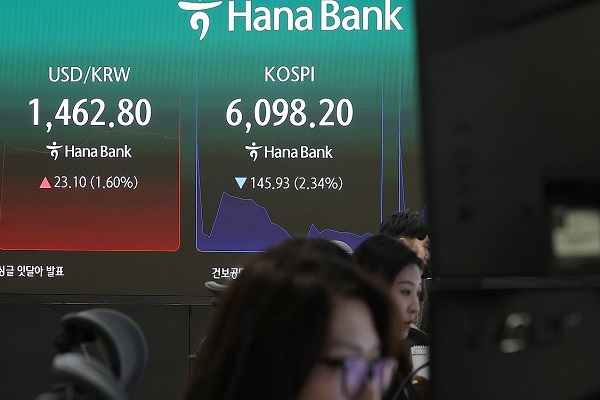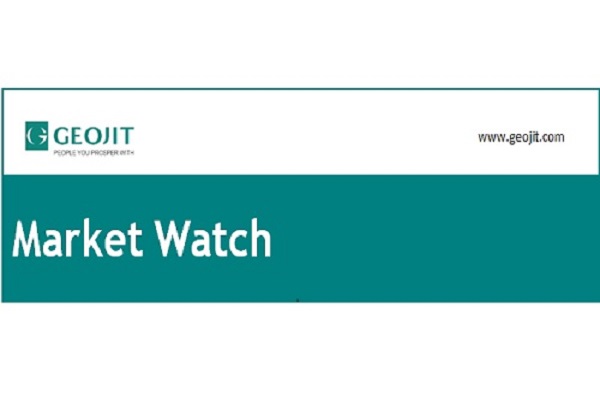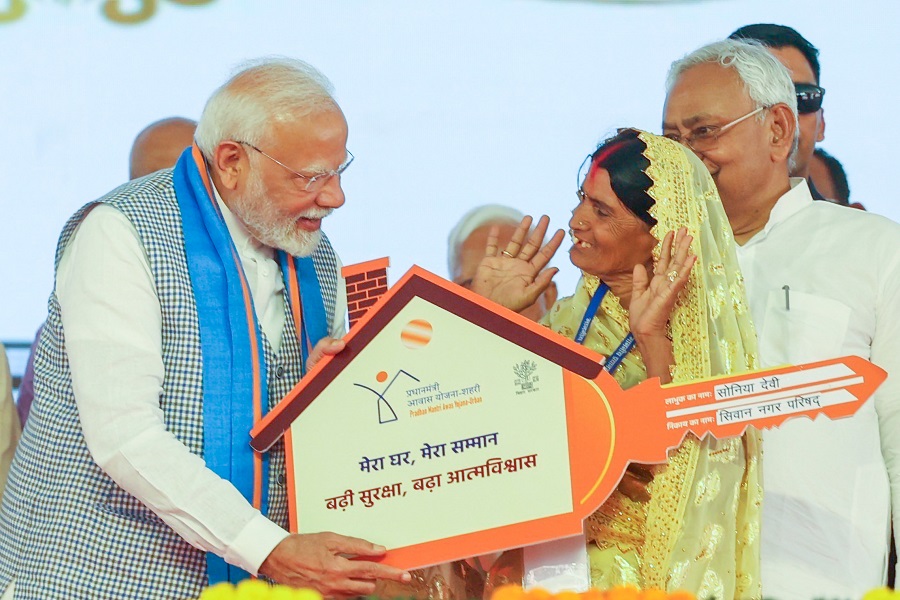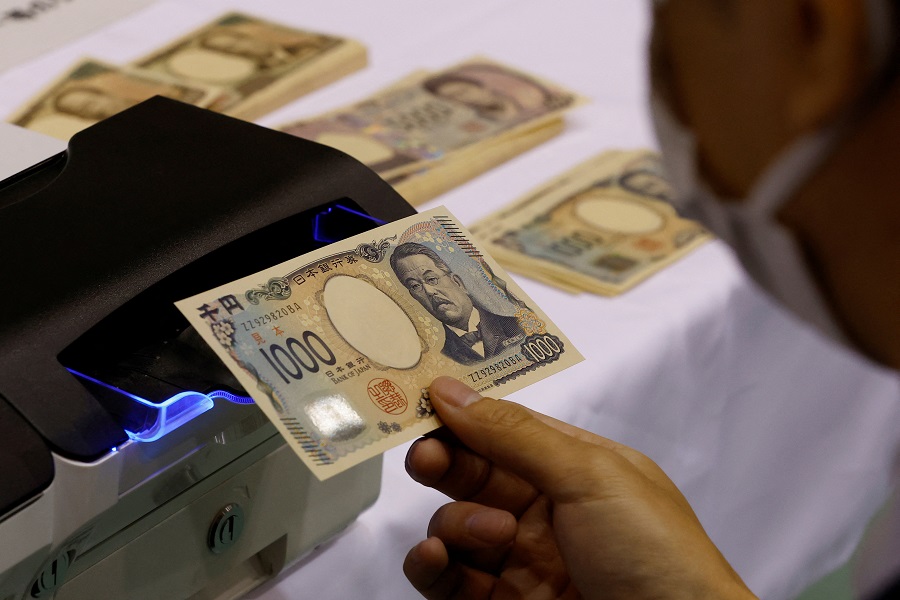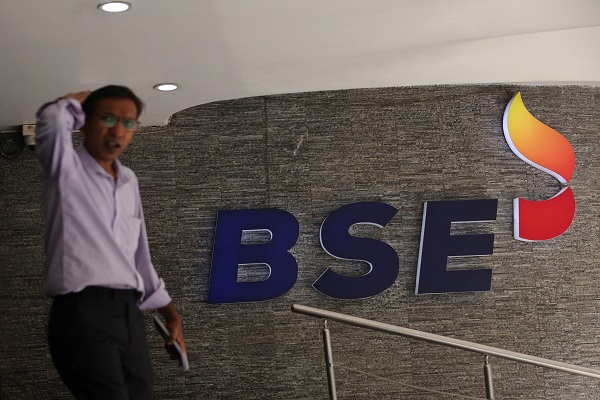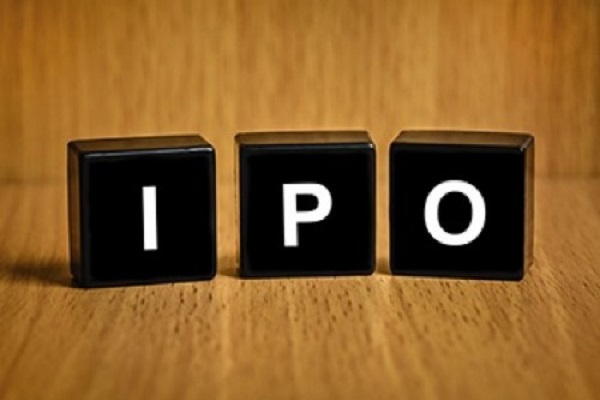Ventive Hospitality coming with IPO to raise Rs 1686.61 crore

Ventive Hospitality
- Ventive Hospitality is coming out with a 100% book building; initial public offering (IPO) of 2,62,30,355 shares of Rs 1 each in a price band Rs 610-643 per equity share.
- Not more than 75% of the issue will be allocated to Qualified Institutional Buyers (QIBs), including 5% to the mutual funds. Further, not less than 15% of the issue will be available for the non-institutional bidders and the remaining 10% for the retail investors.
- The issue will open for subscription on December 20, 2024 and will close on December 24, 2024.
- The shares will be listed on BSE as well as NSE.
- The face value of the share is Rs 1 and is priced 610 times of its face value on the lower side and 643 times on the higher side.
- Book running lead managers to the issue are JM Financial, Axis Capital, HSBC Securities and Capital Markets (India), ICICI Securities, IIFL Capital Services, Kotak Mahindra Capital Company and SBI Capital Market.
- Compliance Officer for the issue is Pradip Bhatambrekar.
Profile of the company
Ventive Hospitality is a hospitality asset owner with a primary focus on luxury offerings across business and leisure segments. All of its hospitality assets are operated by or franchised from global operators, including Marriott, Hilton, Minor and Atmosphere. Its pro forma revenue from hotel operations constituted 68.47%, 72.04%, 72.71% and 68.53% of its pro forma total income for the six months ended September 30, 2024 and FY24, FY23 and FY22 respectively. Its revenue from hotel operations constituted 56.24%, 49.26%, 51.11% and 38.37% of its total income for the six months ended September 30, 2024 and FY24, FY23 and FY22 respectively, on a restated basis. Its pre-acquisition luxury hospitality asset comprises JW Marriott, Pune, and its post-acquisition luxury hospitality assets comprise JW Marriott, Pune, The Ritz-Carlton, Pune, Conrad, Maldives, Anantara, Maldives and Raaya by Atmosphere, Maldives. Its luxury hospitality assets contributed to over 80% of its pro forma revenue from hotel operations and over 58% of its pro forma total income for the six months ended September 30, 2024 and FY24, FY23 and FY22.
The company’s portfolio comprises 11 operational hospitality assets in India and Maldives, totalling 2,036 keys across the luxury, upper upscale and upscale segments as at September 30, 2024. The Ritz-Carlton, Pune is one of only two “The Ritz-Carlton” hotels in India, which is a luxury brand within the Marriott portfolio. JW Marriott, Pune is the largest luxury hotel based on the number of keys in Pune and is one of only eight luxury hotels in India with inventory of between 400 to 500 keys as at September 30, 2024. It has the largest ballroom among luxury hotels in Western India, which is ideal for hosting large scale MICE events and weddings. It owns three luxury hospitality assets in the Maldives, which has been ranked consistently as one of the best tourist island destinations globally (including World’s Leading Destination (2023) and Indian Ocean’s Leading Destination (2024) at the World Travel Awards) with its unique “one island, one resort” concept.
Its hospitality assets command an ARR premium vis-a-vis their peers in India and Maldives, which is a testament to their superior asset quality, contemporary offerings and customer experience. Its luxury and upper upscale hotels in Pune achieved an ARR index of 1.44 compared with other luxury and upper upscale hotels in Pune from January 2024 to September 2024. Similarly, the ARR index for Conrad, Maldives and Anantara, Maldives is 1.04 compared to the luxury and upper upscale segment in the Maldives from January 2024 to September 2024. Its hospitality assets are enhanced by its leading, award-winning F&B offerings. In Pune, eight of its restaurants feature in the top 10 fine dining restaurants according to TripAdvisor rankings as at November 8, 2024, including Alto Vino, an Italian restaurant, and Tao Fu, a Chinese restaurant at JW Marriott, Pune and Ukiyo, a Japanese restaurant at The Ritz-Carlton, Pune.
Proceed is being used for:
- Repayment/prepayment, in part or full, of certain of borrowings availed by; i) company including payment of interest accrued thereon; and ii) Step- down Subsidiaries namely SS & L Beach Private Limited and Maldives Property Holdings Private Limited, including the payment of interest thereon through investment in such step-down Subsidiaries
- General corporate purposes
Industry Overview
India is the 5th largest global economy and among the fastest growing economies in the world. The hotel sector has a strong multiplier effect that contributes materially to India’s economy by way of GDP, asset and investment growth, employment, foreign exchange earnings and tax revenues. Hotel demand is driven by business and leisure travel, staycations and travel for weddings, conferences and events. The travel and tourism sector contributed Rs. 19.1 tn in CY23 (5.6% of GDP) and is expected to contribute about Rs 21.2 trillion in CY24 and over Rs 43 trillion by 2034. The sector was estimated to employ about 43 million persons by CY23. Demand for chain affiliated hotel rooms has increased to 120k rooms per day (2.48 rooms per Rs crore of GDP) in FY24 from 71k rooms per day (2.24 rooms per Rs crore of GDP) in FY16, and is expected to increase further to 167k rooms per day by FY27.
India has only 195k chain affiliated hotel rooms, across segments, as of 30 September 2024 compared to 56k keys in San Francisco and 150k keys in London as of 31 December 2023. The sector is underpenetrated compared to global counterparts in terms of ratio of rooms to commercial office stock with top 8 cities of India having 118 keys per msf of office space, compared to 637 keys per msf of office space in London and 486 keys per msf of office space in San Francisco as of 31 December 2023. Total hotel keys penetration basis population as of 31 December 2023 is also lower in India at 0.3 keys per 1,000 people compared to 22.1 / 2.7 keys per 1,000 people in the USA / globally.
Hotels have generally enjoyed positive demand conditions in the aftermath of COVID pandemic. Aggregate demand for the ten Key Markets (Mumbai, Delhi NCR, Bengaluru, Chennai, Hyderabad, Kolkata, Pune, Ahmedabad, Jaipur and Goa) was 27.4 mn rooms for FY24 compared to 25.5 mn rooms for CY19. This growth is particularly notable considering that inbound travel for business and leisure is yet to fully recover, and further that the IT sector is yet to fully implement ‘return to office’. Cities with wider reach across multiple demand segments have gained more speedily; thus, Pune gained from its advantage as a significant hub for the services sector (GCCs, IT, ITeS, banking, professional services, retail) and for manufacturing (mainly automotive and engineering) to achieve demand of 5k rooms per day for FY24 compared to 4.8k rooms per day for CY19. As an emerging metro city, Pune has absorbed large supply growth (7.4k chain affiliated hotel rooms; ranked eighth in India) and is ahead of Kolkata, Ahmedabad, and Gurugram as of FY24. All India inventory growth from YTD Sep-24 to FY27 is estimated at 11.3% CAGR; in contrast Pune and Bengaluru have a more limited pipeline reflecting inventory growth at 1.6% and 5.4% CAGR, respectively.
Pros and strengths
Premium hospitality assets complemented by Grade A annuity assets: The company’s hospitality portfolio includes marquee luxury assets that are operated by global hospitality brands. Its pre-acquisition luxury hospitality assets comprise JW Marriott, Pune, and its post-acquisition luxury hospitality assets comprise JW Marriott, Pune, The Ritz-Carlton, Pune, Conrad, Maldives, Anantara, Maldives and Raaya by Atmosphere, Maldives. Its luxury hospitality assets collectively contributed to over 80% of its pro forma revenue from hotel operations and over 58% of its pro forma total income for the six months ended September 30, 2024 and FY24, FY23 and FY22. Its luxury hospitality assets contributed to over 81% of its revenue from hotel operations and over 46% of its total income for the six months ended September 30, 2024 and FY24, FY23 and FY22, on a restated basis. Its hospitality assets in India benefit from large-scale events spaces and award-winning F&B offerings, and are located close to key transport and social infrastructure areas.
Established track record of development and acquisition-led growth: As at September 30, 2024, the company’s operating portfolio consists of seven hospitality assets with 1,331 keys which were developed by the company, its Promoter, Promoter Group and their affiliates and four hospitality assets with 705 keys which were acquired by it, its Promoter, Promoter Group and their affiliates. It has a demonstrated track record over the last 15 years in developing marquee hospitality assets, executing landmark acquisitions and utilizing its design capabilities to create value in its acquisitions and establish a presence in desirable destinations across the Indian Ocean Region. Its hospitality assets are located in established business destinations such as Pune and Bengaluru, premium tourist destinations such as the Maldives and spiritual and cultural hubs such as Varanasi. It focuses on submarkets and locations based on their proximity to airports and transport hubs, central business and commercial districts and areas with high tourism potential.
Long-term ESG commitment: The company is dedicated to maintaining strong ESG standards and upholding its ESG mission “Integrate responsible practices in all facets of its operations and helping to create a more sustainable and inclusive world”. It aims to create awareness among its guests, tenants, communities, employees and investors through environmentally responsible and ethical practices. its management is committed to inculcating ESG initiatives into its business goals, regularly tracking its progress and determining areas for improvement. It is actively working on a roadmap to achieve energy consumption from green energy sources to more than 50% by FY26 and achieve 75% by FY28; to achieve 100% water recycling systems in all its hotels by FY28; to increase gender diversity in its workforce and ensure at least 30% women constitute its total workforce by FY30; to achieve a net-zero greenhouse gas (GHG) emissions by FY34.
Well-positioned to benefit from industry tailwinds: India is the fifth largest global economy and among the fastest growing major economies in the world. The hotel sector has a strong multiplier effect that contributes materially to India’s economy by way of GDP, asset and investment growth, employment, foreign exchange earnings and tax revenues. Hotel demand is driven by business and leisure travel, staycations and travel for weddings, conferences and events. In India, the trend for hosting weddings in city hotels or as destination weddings has grown materially and is gaining further momentum. Several city hotels attract large residential weddings, akin to destination weddings in leisure centres. Moreover, Resort development in the Maldives involves high costs (typically 4 to 6 times of construction costs in India), which pose a material barrier to entry, requiring substantial equity financing capacity and debt support. Consequently, the gestation period of new projects can be longer than anticipated, with resultant cost escalations. Project implementation often stretches over five to eight years; with three to five years further required for operational stability. Given its presence in Maldives with three luxury resorts, it is well-positioned to benefit from the demand growth boosted by improving infrastructure growth and the limited expected supply.
Risks and concerns
Significant portion of pro forma total income is derived from hotel operations: A significant portion of its pro forma total income is derived from its pro forma revenue from hotel operations, which contributed to 68.47% and 72.04% of its pro forma total income for the six months ended September 30, 2024 and FY24, respectively. In addition, a significant portion of its pro forma total income is derived from its pro forma revenue from hotel operations of four of its largest hospitality assets based on pro forma revenue from hotel operations, being Anantara, Maldives, Conrad, Maldives, JW Marriott, Pune and The Ritz-Carlton, Pune. The company’s largest hospitality assets contributed to 52.83% and 58.26% of its pro forma total income for the six months ended September 30, 2024 and FY24, respectively. Any decrease in its pro forma total revenue from these hospitality assets, including due to increased competition and supply or reduction in demand in the markets in which these hospitality assets operate, may have an adverse effect on its business, results of operations and financial condition.
Most of its hospitality assets are operated by or franchised from Marriott and Hilton: Prior to the acquisition of its New Portfolio, the company owned a single hospitality asset which was operated by Marriott. Post completion of Acquisition Transactions, its hospitality assets are operated by or franchised from third-party brands, such as Marriott, Hilton, Minor and Atmosphere. Thus, it is significantly dependent on its relationship with these third-party operators or franchisors and compliance with the terms of such agreements entered into with these entities. As at September 30, 2024, its Portfolio comprised 11 operational hospitality assets comprising 2,036 keys, of which six are operated by or franchised from Marriott, two are operated by or franchised from Hilton, one is operated by Minor, one is operated by Atmosphere and one is operated by Oakwood. As at September 30, 2024, hospitality assets operated by or franchised from Marriott and Hilton comprised 1,589 keys or 78.05% of the keys in its hospitality portfolio. Any termination of these arrangements or other problems in its relationships with its hotel operators could lead to a decrease in its revenues or impair the quality of its operations, which may have an adverse effect on its business.
Hospitality business is subject to seasonal and cyclical variations: The hospitality industry in India and the Maldives are subject to seasonal variations, to varying extents. The periods during which its hospitality assets experience higher revenues vary from property to property, depending principally on their location and segment. The ARR and RevPAR for its hospitality assets are generally higher during the second half of each Financial Year relative to the first half of the Financial Year. Such seasonality can be expected to cause quarterly fluctuations in its revenue, profit margins and earnings. The timing of opening of new hotels and the timing of any renovations, acquisitions or dispositions may cause a variation of revenue and earnings from quarter to quarter. Further, the hospitality industry is subject to weekly variations, with business travel generally being higher during the weekdays. The hospitality industry is cyclical, and demand generally follows, on a lagged basis, key macroeconomic indicators. Demand for rooms, occupancy levels and room rates realized by owners of hospitality assets increases and decreases through macroeconomic cycles. The combination of changes in economic conditions and in the supply of rooms can result in significant volatility in its results.
High working capital requirement: The company’s business is capital intensive as it requires capital to operate, refurbish and expand its properties and operations. Due to the fact that certain of its properties are positioned as premium properties, the costs of maintenance may be higher, and the need for rebuilding or refurbishment more frequent in order to maintain their market position as premium properties. Its properties may require periodic capital expenditure for refurbishments, renovation and improvements beyond its current estimates and it may not be able to secure funding for such capital expenditure, in a timely manner or at all. Its inability to raise adequate finances may result in its results of operations, cash flows and business prospects being materially and adversely affected.
Outlook
Ventive Hospitality is in the hospitality business, primarily focusing on business and leisure segments. The company primarily focuses on developing and managing high-end luxury hotels and resorts. The company has established track record of development and acquisition-led growth in India and the Maldives. It is well-positioned to benefit from strong industry tailwinds. On the concern side, most of the company’s hospitality assets are operated by or franchised from Marriott and Hilton, collectively comprising 8 out of 11 operational hospitality assets, contributing to 78.05% of the keys in its hospitality portfolio as at September 30, 2024 and 49.19% of its pro forma total income for the six months ended September 30, 2024. While it has entered into long term agreements with such third party operators or franchisors, if these agreements are terminated or not renewed, its business, results of operations, cash flows and financial condition may be adversely affected.
The company is coming out with a maiden IPO of 2,62,30,355 equity shares of Rs 1 each. The issue has been offered in a price band of Rs 610-643 per equity share. The aggregate size of the offer is around Rs 1600.05 crore to Rs 1686.61 crore based on lower and upper price band respectively. On performance front, the company’s revenue from operations increased by Rs 471.67 million or 10.95%, from Rs 4,308.13 million in FY23 to Rs 4,779.80 million in FY24. Moreover, its restated profit after tax increased by Rs 350.44 million or 26.70%, from Rs 1,312.73 million in FY23 to Rs 1,663.17 million in FY24.
The company’s leadership and management team have a demonstrated history of developing award-winning hospitality assets in prime locations. It has established leading positions in its existing markets. For further information on the ARR index of its hospitality assets in Pune and the Maldives. It intends to grow its portfolio and increase its market share in these markets through organic and inorganic growth opportunities. It also plans to focus on expanding beyond its current markets, in regions offering significant and compelling growth prospects, which will allow it to broaden its geographic footprint. The company’s pipeline assets are situated outside its existing markets which would enable it to diversify its geographical presence. It plans to increase the number of keys across its hospitality assets by an estimated 367 keys or 18.02%, from 2,036 keys as at September 30, 2024 to around 2,403 keys in FY2028 through its development and expansion initiatives in Varanasi and Bengaluru in India and Pottuvil, near Yala East National Park and Arugam Bay Beach in Sri Lanka. The company aims to replicate the leading positions it enjoys in its existing markets in these new markets.
